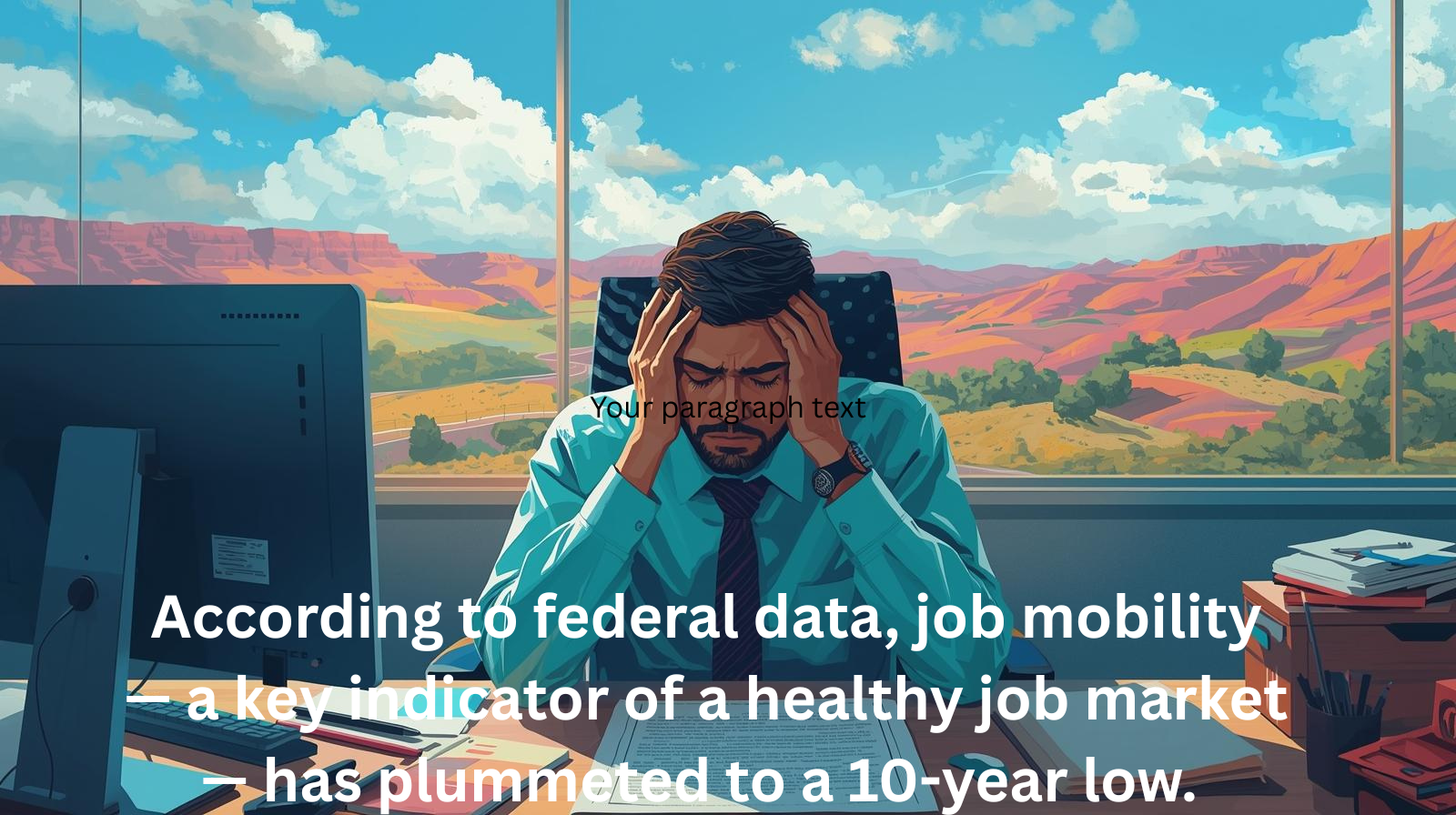Summary:
There is a significant shift in the air, from the once-prevalent entitlement to a palpable fear of job security. The dreaded R-word recession is a topic of much conversation. Workers are facing layoffs in many sectors, with few prospects for replacement jobs. The COVID-19 infusion of free money, politically motivated to buy votes, has dried up, as has the attitude of entitlement. The once cocky attitude of ‘I will get a higher-paying job’ has been replaced by anxiety about losing one’s job.
An attitude of entitlement, characterized by overconfidence in job mobility, was arrogant, dismissive, and, in some cases, hostile in a subculture where the world revolves around me. Who cares about the employer and all the money they spend on my job training?
According to federal data, job mobility — a key indicator of a healthy job market — has plummeted to a 10-year low. This significant drop should raise concerns and sound alarm bells about the future of employment and the overall economic landscape.
Article:
According to the Wall Street Journal, wages for those who remained at their jobs increased by 4.6%. In comparison, those who switched saw an increase of 4.8%, down from 7.7% at the beginning of 2023. Replacement job offers are coming in at $10,000 to $40,000ss, so much for those with an entitlement cocky attitude.
Lost in the dynamics of changing methods:
Things can pivot on a dime when the punch bowl dries. The guest can be left in wonder and thirst. The change in attitude has been hard for some.
When business opportunities deteriorate, what do frustrated salespeople do? They may be tempted to perpetuate a losing strategy, which includes working from home, focusing on distracting activities, only responding to inbound messages, selectively returning calls, and engaging in what is now commonly referred to as ‘quiet quitting.’ Quiet quitting is a term used to describe a situation where a person does not outright quit their job but regularly shuffles their daily activities to avoid stressful confrontations, outbound calls, and sales rejections. Instead of focusing on business-related tasks, they may spend their time on social media, take extended breaks, or commiserate with others about work-related issues.
These individuals, known as "parasitic quiet quitters,” exploit their employers by engaging in fraudulent activities to avoid legitimate work. For example, they might use a mouse jiggler to make it appear like they are working when they are not. Management may use productivity monitoring software as a surveillance mechanism to ensure compliance with company work requirements. The parasitic quiet quitter is actively engaged in fraud, which can lead to significant losses for the company.
The "Great Resignation” and the “Great Reshuffle” are significant economic trends and seismic shifts in the employment landscape. These terms, which describe the mass exodus of dissatisfied workers from their jobs, underscore the magnitude of dissatisfaction and the urgent need for change in current work situations. This trend was particularly prevalent in 2021 and 2022, when many workers left their jobs in search of better opportunities. The impact of these shifts is profound, and all stakeholders must understand and adapt to these changes. It’s not just a trend but a necessity for survival in the evolving employment landscape.
The Great Reset:
The ‘Great Reset’ is not just a term but a significant shift in the labor market and employment landscape. Times have changed, and now we see the “great stay,’ where workers stay put for fear of losing their jobs. This starkly contrasts with the ‘Great Resignation,’ a term used to describe the mass exodus of workers from their jobs due to dissatisfaction or in search of better opportunities. All the free money and entitlements from the COVID-19 fiasco have dried up, as has the turbulence of the pandemic-era labor market. We are heading into a recession in which workers feel less secure. As we read or watch the news today, we note massive layoffs and retail store closures. Office buildings are sometimes nearly empty, as workers still prefer working from home. A byproduct of that change is that retail has lost its luster. Just stroll through most local shopping centers, and you will see vacancies of 20% to 30% are not uncommon. The ‘Great Reset’ has a profound impact, and it’s time for all stakeholders to take it seriously.
